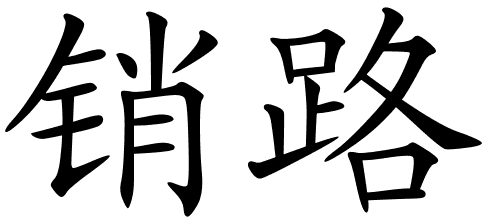By Cristina Dias Neves.
While European stock traders were trembling all week at the dreadful news that their assets in China were shrinking at a very fast pace, my worries about China were much more trivial. Next term, my oldest son can choose Mandarin as his third foreign language. My motherly instinct said immediately “no”. I refuse to transform my son into a pocket-pen drive full of data. At 10, English and German as foreign languages are more than enough! But all those hard-headed minds that surround me just do not agree: Of course, he should learn Chinese, it’s an obvious asset for his future! It’s dreadful but I can’t face the idea that China is going to rule the world.
Moving on from this painful subject and also during this silly summer season, Mummy—one of those pragmatic spirits I just referred to—decided to sell her lovely house, near Europe’s western-most cape. “Don’t worry, Mum, you will sell it promptly to some Chinese looking for a gold visa,” I said to cheer her up. A few weeks later, my prophecy came true. A lovely Chinese couple arrived, first the husband, then the husband and his charming wife. They told Mum immediately that they wanted the house, enchanted with the huge avocado tree and lovely little garden.
A few days later, they came back. This time with an army of Chinese children, uncles, aunts and friends who were moving up and down the stairs, turning the house inside out, looking into the fridge, staring inside Mum’s modern cupboards and admiring the few family antiques that still remained. In the end, it turned out that this new inspection was not just for fun. They wanted to keep all the furniture. “Would it be possible, my lovely lady, for you to leave almost immediately, maximum next month, leaving all the furniture, antiques included, behind?”
Mum, who is not used to cold wars and harsh battles, and despite being 25 years older than me, didn’t freeze at all. “Ok, but on my terms, gentlemen…,” she responded. To be brief, the house was sold, Mum kept the furniture, but would leave in a month; a quick and clean deal, considering the present circumstances in Portugal. The real estate market has been dropping for the last 10 years and, at this very moment, despite a recent recovery, only houses that are worth more than half a million euros can be sold without depreciation. Due to our “golden visa” policy, put in place at the end of 2012 to attract non-EU residents to invest in our country, we’ve been importing a lot of residents lately. 80% of the golden visa tenants are Chinese investors that bet on a mid-term real estate bullish phase.
For this reason, if you arrive these days at Lisbon airport, you will see posters everywhere advertising Portuguese real estate in Chinese characters, just as if you were arriving in Shanghai or Beijing. There are real estate agencies specialised in this market, with Chinese brokers, Chinese guides and drivers and even Feng Sui specialists, who check the configuration of houses considering the exquisite tastes and beliefs of this very special clientele.
But why is it so difficult for me to face the truth? Guess what, if it weren’t for the Chinese, we would almost have no commercial shops in our city centers anymore! One by one, since our very own Portuguese crisis started–at least 5 years before the sub-prime financial crisis–restaurants, banks, luxury boutiques and bookshops have been replaced by Chinese stores that sell everything you can imagine at ridiculous prices. It’s kind of sad to admit, but Chinese stores selling low-quality merchandise saved the Christmas season for many Portuguese children, the vanity of many Portuguese women and the wallet of thousands of families in these last years of austerity. A community that was for years confined to just a few restaurants, in the last decade spread all over the country taking over all commercial real estate left by the businesses that didn’t survive the crisis.
From this micro-activity to big money deals, it was just a small step ahead. While we were under the IMF austerity programme, Chinese corporations took part in all major public company IPOs, taking lion shares in diverse businesses, from energy infrastructures (EDP, REN) to insurance companies (Fidelidade), showing that they are here to stay with long-term investments. Their last move is the announced victory in Novo Bank’s auction, launched by the Portuguese government to sell the successor to Banco Espirito Santo that was rescued last year. The biggest insurance company, Anbang, which became famous after the purchase of one of New York’s crown jewels, the famous Hotel Waldorf Astoria, was the one that was invited to start negotiations in order to close the deal.
According to a Baker and McKenzie report, Chinese investment is hitting a record high in Europe . Since the beginning of the 21st century, the United Kingdom has been first on the list, getting 16 billion USD in Chinese investment; Germany is second with 8.4 billion USD; France is third with another 8 billion USD; and finally Portugal and Italy are in fourth and fifth place, with 6.7 billion USD and 5.6 billion USD, respectively. Last year, the total Chinese investment in Europe doubled to 18 billion USD in sectors such as agriculture and food business, energy, real estate, automotive and finance. As you can understand, in a country like Portugal, this kind of investment doesn’t go unnoticed.
So why did I freak out with this Mandarin idea? It’s probably that I’m just an ignorant citizen who was raised during the Cold War, influenced by Russian and American propaganda. The awareness of the cruel Chinese regime left marks on my subconscious. This “yellow danger” alert keeps whispering to me that the Chinese will have us all for breakfast, although my conscious mind would deny that.
Instead of noticing that there are hundreds of Chinese corporations, like the search engine Baidu or the e-commerce site Alibaba, competing for global business, that there are millions of Chinese people escaping poverty every year, that they have a huge drive to adjust and to perform, I –as the average European– insist on seeing them as funny people who eat dogs and still imprison political dissidents.
Looking at their investments outside their country, curiously what I see is risk-taking with a handful of rationality and a lot of hard work. It is as if they are seizing every opportunity that the others from the top of their philistine comfort do not want to take. Too much trouble for their return on investment they would say. You can see this in developing countries, where Chinese investment has already been growing for more than two decades, and now in our advanced Western economies, profiting from every opportunity they get. If we add to this their demography – for each Portuguese citizen there are 140 Chinese on earth – and their drive, we really have no chance unless we learn to live with them. The latest major yuan devaluation is just making us remember this ineluctable truth.
The woman that bought my mother’s house told her that, from now on, Mummy would be her Portuguese mother. I smiled sarcastically on the other end of the phone line when Mum told me this proudly. But now, after giving it some thought, it is better to run, not hide. Learning Mandarin is an obvious necessity. China will take care of all of us freaky European bourgeois and, if I personally don’t pay attention, they will take care of my mum, too.

Cristina Dias Neves was born in Lisbon, studied Political and Communications Sciences, started her professional life as a reporter and continued in the media business as a consultant and head of communications for private corporations.


